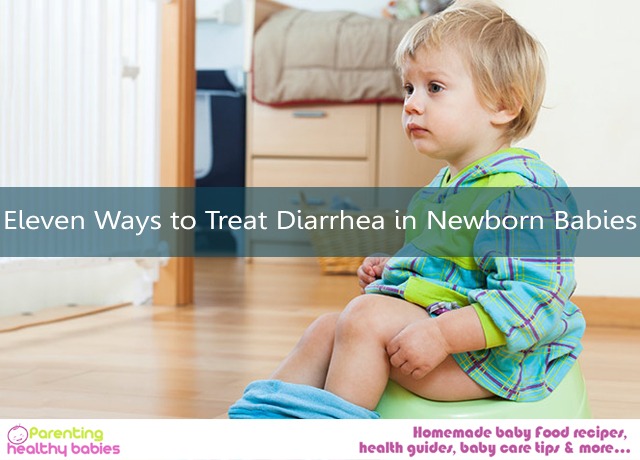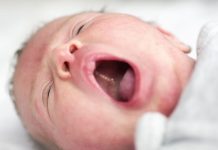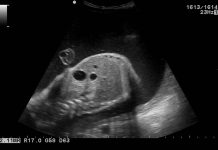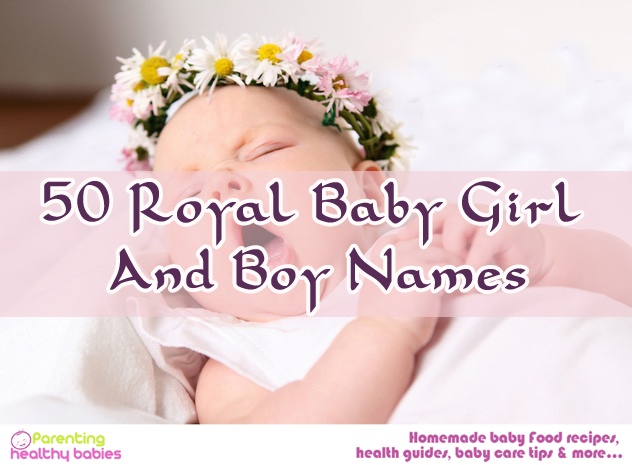As mothers, we do our best to keep our cute little miniature humans safe and healthy. They become a priority to us. So, it is only natural to be worried about their well-being, especially if they have suspected diarrhea.
Newborns have frequent loose stools. Sometimes, even with every feeding. So, it may be hard to know what’s normal and what isn’t.
Signs Of Diarrhea In Newborn
- Sudden change in the frequency of baby’s stool
- Sudden change in consistency of baby’s stool
- Increase in the number of stools per feeding
Complications Of Diarrhea In Infants
- Dehydration is one of the major and probably the most dangerous complications of diarrhea.
- Skin rashes, commonly known as diaper rash is another complication. It is irritating to the neonate and occasionally, may develop infections.
Signs Of Dehydration
Dehydration in infants is dangerous. Babies do not yet have a fully developed system that balances water and electrolyte. So, they may not be able to cope up with the continuous loss of water. Contact a doctor as soon as you notice any sign of dehydration.
The common signs of dehydration are:
- Dry eyes. It may manifest as little or no tears while crying.
- Fewer wet diapers than usual (less than 6 in a day)
- Lethargic baby
- Unusual drowsiness or sluggishness
- Irritable behavior
- Sunken eyes
- Sunken fontanel (the soft spot on top of baby’s head)
- Lack of elasticity in skin ( it does not spring back when you gently pinch and release it)
Eleven Ways to Treat Diarrheain New-Borns
-
Know the cause
Knowing the reasons why your baby may be suffering from diarrhea not only puts your mind to ease but will also help you to determine the future course of action.
The common causes known to cause diarrhea in infants are:
- Change in mother’s diet if breastfeeding. Sugars, fast carbohydrates, excessivesalts and oily food in mother’s diet are a common cause of diarrhea.
- Use of antibiotics by the mother. During breastfeeding, antibiotics must be used judiciously and as advised by a medical practitioner. Some antibiotics cross into the breast milk which is taken by the baby. They may cause diarrhea.
- Viral infection is the leading cause of diarrhea in infants. It resolves on its own without the help of antibiotics.
- Bacterial and parasitic infections
- Food allergies.
-
Keep breast feeding
Breast milk contains essential antibodies which help in fighting infections and keep the baby healthy. The best way to cure diarrhea is to continue feeding the baby. If the newborn is vomiting, it is advisable to feed less quantity more frequently.
If the baby is on formula, make the formula full strength unless advised by a doctor. If the baby is still thirsty after the feed, talk to your practitioner about pedialyte or infalyte between feeds. These serve as replacements of oral rehydrating solution (ORS) which is used in older children and adults.
-
Prevent diaper rash.
One of the common problems in diarrhea is the diaper rash. Some ways to avoid it are:
- Change baby’s diaper frequently.
- Clean baby’s bottom with water and let it air dry.
- Avoid baby wipes because most baby wipes contain alcohol which may irritate the sensitive skin.
- Use diaper cream. Spread a thick layer on baby’s bottom.
- Avoid baby powder.
-
Adjust Your Diet
If you are a nursing mother, controlling or changing your diet is a good way to help treat diarrhea. Avoid greasy foods, dairy products, high fiber food, fruit juice and sweets. Remember BRAT: bananas, rice, applesauce, toast. These are bland food items which thicken the stool and fight infection. They also soothe the gut.
This change of diet is also advised for toddlers on solid food to treat diarrhea.
-
Wash Your Hands
The importance of washing hands is under-rated. You’d be surprised at the number of diseases that can be controlled just by the action of frequently washing hands. Your child’s diarrhea may be infective in nature. Always wash your hands properly, for at least 15 seconds, with soap in warm water after handling diapers. Frequently wash baby’s hands too.
-
Prevent The Spread Of Diarrhea
It is important to prevent the spread of diarrhea in children, other members of family etc. This can be done by not sharing towels with the infected child. Not taking the baby to the nursery or to swim in the swimming pool.
-
Vaccinate Your Child
The most common virus that causes diarrhea in children is Rotavirus. It accounts for 75% of all viral diarrheas in children. A vaccine named ‘ROTARIX’ is available in the UK and by the name of rotavirus vaccine in other countries. It is available on NHS as a part of immunization schedule. This is an oral vaccination and is given 2-3 drops orally in two separate doses at 2 month and 3 months respectively.
-
Do not give anti diarrhea medicines.
The US Food and Drug authority ( FDA) has warned against the use of over the counter anti diarrhea medications in children less than 1 year. Only medicines prescribed by a medical practitioner, after the examination of the new-born is to be given. It is noteworthy that FDA has not approved or recommended any diarrheal medicines for new-born.
-
Rest
Appropriate rest is necessary for the body to heal itself. Allow the baby to rest and sleep without disturbing it much. However, check periodically for any reported sluggishness or drowsiness.
-
Probiotics
Probiotics are foods and food supplements which allow the natural growth of the normal flora of the gut (Mostly lactobacilli).
If the baby is breast feeding, supplements may be added to breast milk or breast milk yogurt may be fed. The nursing mother should also consume probiotic rich food.
In case of formula, probiotic supplements can be added to it.
However, one must always consult the doctor before adding probiotics to the diet.
-
Calling a doctor
It is important to know the signs that denote that a professional help is required. Immediately call a doctor if the following signs are present:
- Diarrhea in a baby less than 3 month old to ascertain the cause of diarrhea
- Fever of 102 degree Fahrenheit or higher
- Blood with stool
- Vomiting associated with diarrhea may be a sign of infection.
- Any sign of dehydration indicate that the baby is at risk.
Stay informed, stay safe!!













